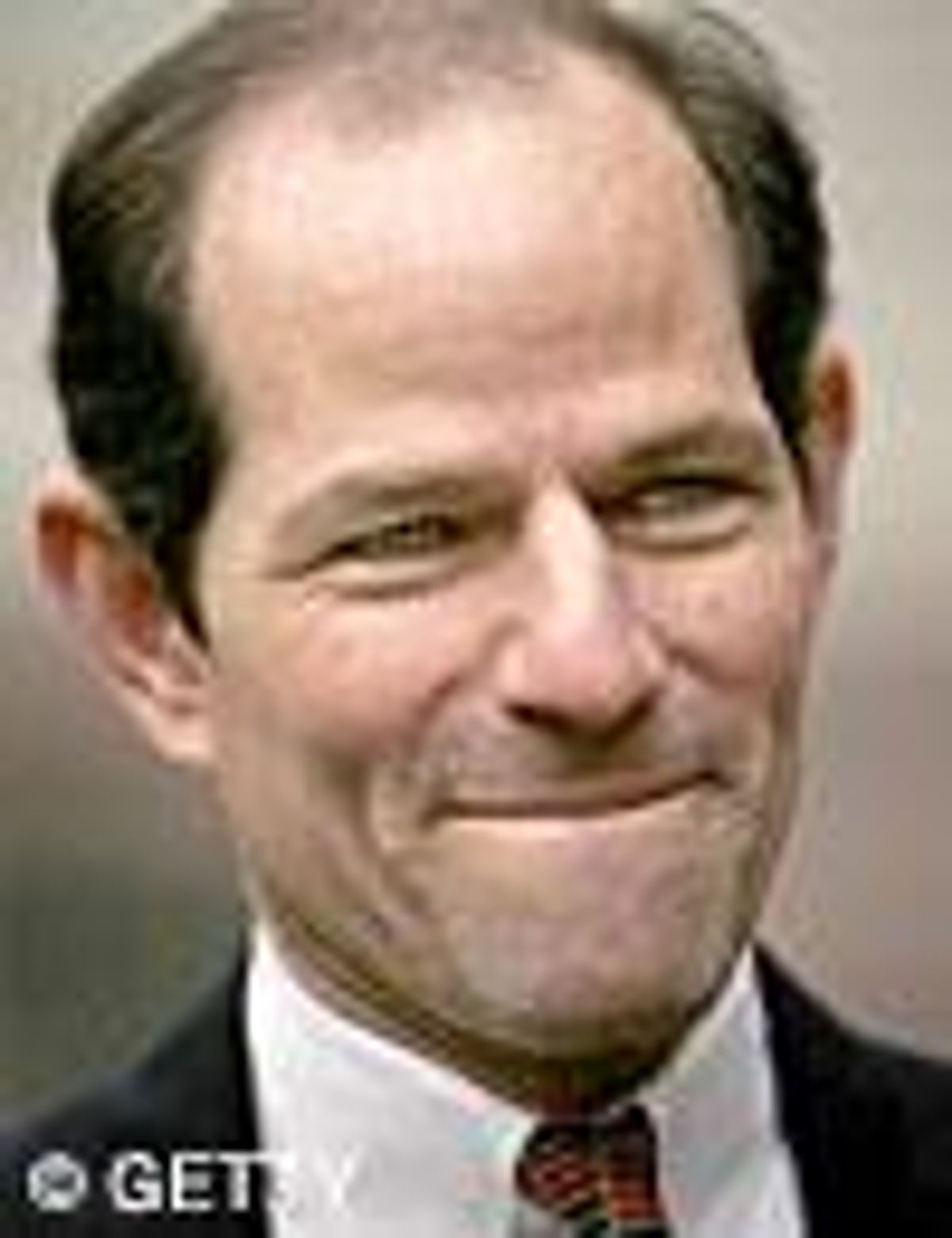New York governor
Eliot Spitzer submitted a bill to legalize same-sex
marriage Friday, making good on a promise he made during his
2006 bid for the gubernatorial seat. This is the first
time any U.S. governor has authored and introduced a
same-sex marriage bill to a state legislature.
At the same time
the bill was introduced, the New York State Department
of Civil Service, which is part of the Spitzer
administration, said that all legal out-of-state
marriages of state and local government employees who
are gay will now be recognized, meaning their spouses will
now be eligible for the same medical, life insurance,
and long-term care benefits that are granted to the
spouses of heterosexual state employees.
"Today is
a watershed moment in our community's struggle to win
the freedom to marry in New York and have our
relationships treated the same as any other
relationship under the law," said Alan Van Capelle,
executive director of the Empire State Pride Agenda, New
York's LGBT lobby group.
The governor, who
has called introducing the bill "a simple moral
imperative," issued a statement in support of the
bill that read, "Civil marriage is the means by
which the state defines a couple's place in
society. Those who are excluded from its rubric are told by
the institutions of the State, in essence, that their
solemn commitment to one another has no legal
weight.... Granting legal recognition to these
relationships can only strengthen New York's
families, by extending the ability to participate in
this crucial social institution to all New
Yorkers."
Ethan Geto, a New
York-based Democratic strategist and president of the
consulting firm Geto and de Milly, said passage of the
marriage bill--if it happens--will help
shift the focus away from the judicial branch and
so-called "activist judges," who conservative
critics claim override the will of the people when
they rule in favor of giving gays and lesbians the
right to marry.
"If we can
achieve gay marriage legislatively and the governor signs it
into law, I think it will deflate many of the arguments our
opponents use about activist courts as the vehicle for
achieving marriage equality," said Geto.
A poll
commissioned by the Pride Agenda in 2006 found that 53% of
New Yorkers support marriage for same-sex couples
while 38% do not. In an online poll conducted by
Crain's Business Journal this month, 63%
of voters in New York State said they support a same-sex
marriage law.
But passage of
the bill in the state legislature is far from certain.
Marriage equality currently has the support of 61 members of
the 150-person state assembly, where it will need 76
votes to pass. In the state senate, it has the support
18 senators but will need 32.
A push will now
ensue to get a vote on the bill in the assembly, which
Democrats control, before the close of the 2007 legislative
session at the end of June. But orchestrating a vote
in the Republican-controlled senate this year is less
likely.
Democratic
assemblywoman Deborah Glick, who is gay, said that by
introducing the bill now, the governor has given marriage
proponents "a real opportunity" to
garner the support necessary for a vote in the
assembly.
"We're going to have almost two full months to
work on this," Glick said. "I'm
going to be guardedly optimistic that we can muster
sufficient votes to bring it to the floor."
Glick said one of
the provisions of the bill that should make it more
palatable to those legislators from more conservative areas
of the state is that the bill does not require any
clergy members to perform same-sex marriage.
"It
reinforces [marriage] as a civic institution," Glick
said.
Governor
Spitzer's statement of support read, "In
short, this bill grants equal access to the
government-created legal institution of civil
marriage, while leaving the religious institution of
marriage to its own separate, and fully autonomous,
sphere."
Getting the
marriage bill to the floor of the senate, where Republicans
hold a slim two-seat majority, will be a tougher slog.
Although Democratic senate minority leader Malcolm
Smith has voiced strong support for marriage equality,
Albany insiders generally agree that Democrats would
first have to take control of the chamber in order to bring
about a vote.
"There's still a possibility that there may be
some defections," said Ethan Geto, referencing
rumors earlier this year that two Republican senators
were thinking of switching their party affiliation.
"But we've got an excellent chance of
taking back seats in the election next year. I think
we've got a good chance of passing this bill by 2009
if not sooner."
But openly gay
state senator Thomas Duane, a Democrat, said the bill
still has a chance of passing in the senate. "Maybe
this year, more likely next year, or very, very
soon," he said, adding that it would
"absolutely" pass within the next five years.
Despite the fact
that the senate is controlled by Republicans, Duane said
the issue is "very problematic" for several
Republican state senators because marriage equality
has become very popular in suburban areas of New York
State.
"Being for
marriage is actually popular with the moderate swing voters,
which Republicans need to win their elections," Duane
said. "My experience with Republicans is that
they will do anything they possibly can to keep their
seats, including and especially becoming more liberal
on the social issues."
Regardless of the
bill's future, Evan Wolfson, founder and executive
director of Freedom to Marry, a national organization
working for marriage equality, said Spitzer's
introduction of the bill made a strong political
statement in and of itself.
"The fact
that an intelligent, ambitious, strong politician like Eliot
Spitzer feels he can do this and that he will be vindicated
by history shows the momentum toward marriage
equality," said Wolfson. (Kerry Eleveld, The
Advocate)



















































































